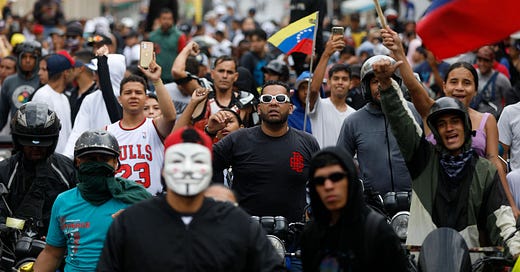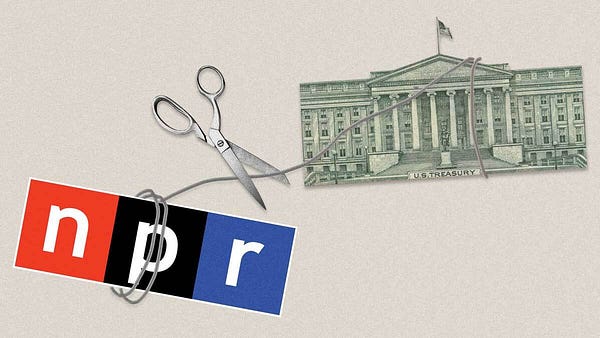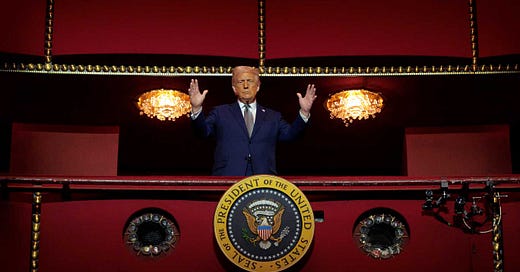
The Free Press

The past 48 hours are unprecedented in Venezuelan history. As I write these words, hundreds of thousands of people are streaming into the streets of Caracas to hear María Corina Machado, the country’s Iron Lady, demanding the regime release the full tallies from Sunday’s presidential election that her movement appears to have won in a landslide.
Nicolás Maduro, the dictator, is holed up in his palace as his lackeys threaten the demonstrators and call them “fascists” on official state television.
How this will all pan out is the question on everyone’s minds. And what can the U.S. do to help ensure a democratic outcome for Venezuela?
Juan Guaidó, a former leader of Venezuela’s democratic opposition, has a clear answer. President Joe Biden must acknowledge what tens of thousands of Venezuelans are risking life and limb to proclaim: the dictator lost Sunday’s election.
The winner was Edmundo González Urrutia, a bearded college professor who agreed to be a stand-in for Machado, the woman initially chosen by Venezuela’s democratic opposition but who the regime disqualified from running for the presidency earlier this year. On Tuesday, the opposition released detailed voter rolls that showed González Urrutia won by 6.3 million votes to Maduro’s 2.8 million.
This has not stopped Maduro from proclaiming himself the winner. His regime’s initial posting of the results was laughable. It claimed to count 132.2 percent of the vote. Eight opposition parties, according to this initial tally, received the same percentage in the election, 4.6 percent.
“We want the U.S. president to congratulate González Urrutia for winning the election,” Guaidó, who was considered the legitimate interim president of his country from 2019 to 2022, told me. “And if Maduro wants to continue the charade that he won, then the international community should place sanctions on him.”
Guaidó’s words stand in sharp contrast to what the Biden administration has been saying about Venezuela’s election. On Sunday, vice president and Democratic presidential nominee Kamala Harris posted a word salad on X. “The United States stands with the people of Venezuela who expressed their voice in today’s historic presidential election,” she wrote. “The will of the Venezuelan people must be respected.”
On Monday, Secretary of State Antony Blinken offered a careful statement, saying: “We have serious concerns that the result announced does not reflect the will or the votes of the Venezuelan people.” So far nothing from the Biden administration acknowledges that González is the winner and that Maduro is attempting electoral fraud.
“We are already at a new stage,” Guaidó said. “González is the winner of an already rigged election. What happened on July 28 is a rigged election that we won with the vote and the people. We have the proof that we won.”
The Biden administration’s position now is that Venezuela’s national election commission must release “the polling place by polling place–level data that their law requires them to share,” one senior Biden administration official told reporters in a background briefing on Monday. The problem with this policy is that the national election commission, like the rest of Venezuela’s regime and most of its economy, is controlled by Maduro and his loyalists.
Elliott Abrams, who served as former president Donald Trump’s special representative for Venezuela, told The Free Press he does not doubt the opposition won the election. “The opposition not only won a massive landslide, at least 2 to 1, they won every single state,” he said. “This was the people of Venezuela saying, ‘we want change.’ ”
Abrams was also disappointed in the Biden administration’s response to the election. “We need to be supporting the Venezuelan people who have risen up peacefully to say, ‘no more.’ The regime is trying to steal their hope for a better Venezuela,” he said.
Nonetheless, there is still time for Biden and his administration to take advantage of this extraordinary opportunity. Early in his administration, the president relaxed sanctions on Venezuela in exchange for promises to hold a national election and respect human rights. Despite Maduro’s decision from March to bar Machado from running in Sunday’s election, the White House chose not to reimpose the oil sanctions it lifted. If Maduro insists on stealing the election, those sanctions should go back into effect.
Abrams recommends a diplomatic campaign to persuade countries influential with Venezuela—Spain, Brazil, and Peru in particular—to support a negotiated transition to the next elected government. Peru’s government on Monday signed on to a statement with eight other Latin American countries expressing “profound concern” over Maduro’s claims to victory.
A reconciliation process can either take place inside or outside of Venezuela, but Abrams warned that the international community must be clear that this negotiation must end with Maduro stepping down. “Maduro will try for a fake negotiation,” Abrams said. “We have to be clear that this is a real national reconciliation.”
A negotiated end to Maduro’s rule would almost certainly have to include amnesty and assurance to key regime officials that they will not face prosecution under the next government. Given Maduro’s reign of cruelty and terror, this will likely be hard for millions of Venezuelans to accept. But such a process has worked in other Latin American countries. Augusto Pinochet ruled Chile with an iron fist, but after losing a referendum on his reign, he still remained a senator inside the country’s parliament.
Guaidó acknowledged that this kind of democratic transition—where the tyrant is not prosecuted for his past crimes—can work. But he added, “In the past we have seen transitional justice; it could work. But it can only work if Maduro acknowledges that he lost the election.”
Eli Lake is a Free Press columnist. Follow him on X (formerly Twitter) @EliLake. Read his Free Press piece, “Iran’s New ‘Reformist’ President Is Anything But.”
To support more of our work, become a Free Press subscriber today:













Biden won't do that. It would increase energy prices before the election. That could hurt democrats chances in November. Since he has demonstrated winning elections is more important the democracy in the U.S., why would you think he would risk the November election to help democracy in another country.
Shouldnt the Venezuelan people stand up for the Venezuelan people? Why does the US have to do this for everyone else in the world.